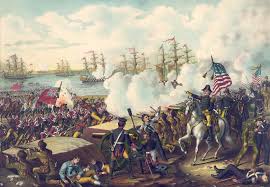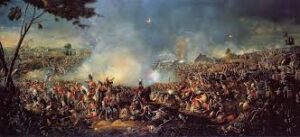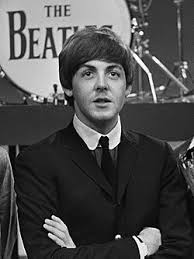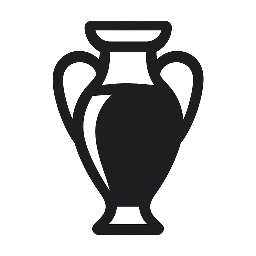Vaša košarica je trenutno prazna!
Frederick Barbarossa

Frederick I, known as Barbarossa due to his distinctive red beard, was a powerful Holy Roman Emperor who reigned from 1155 to 1190. His ambition was to restore the glory of the Roman Empire, leading him to frequent conflicts with the papacy and Italian city-states. He was a charismatic leader, often remembered for his military prowess and attempts to centralize power within his vast domains. Despite his efforts, he faced significant resistance from the Lombard League, an alliance of northern Italian cities. Frederick Barbarossa ultimately drowned in a river in Anatolia during the Third Crusade. His reign is often seen as a golden age for the Holy Roman Empire, characterized by both impressive achievements and persistent challenges. His legacy continues to fascinate historians, symbolizing an era of great imperial ambition and complex political maneuvers.
United States in 1812

In 1812, the United States declared war on Great Britain, initiating a conflict often referred to as the War of 1812. This decision was driven by several factors, including British impressment of American sailors, trade restrictions imposed by Britain and France, and British support for Native American tribes resisting American expansion. The young nation, still finding its footing, was ill-prepared for a full-scale war against a global superpower. Despite early struggles and the burning of Washington D.C., the war fostered a sense of national unity and pride among Americans. The conflict ended with the Treaty of Ghent in 1814, largely restoring pre-war conditions. Although no major territorial changes occurred, the war solidified American independence and established its place on the world stage. It also led to the decline of the Federalist Party and promoted westward expansion.
Battle of Waterloo

The Battle of Waterloo, fought on June 18, 1815, near Waterloo in present-day Belgium, was the decisive engagement of the Napoleonic Wars. This monumental clash saw Napoleon Bonaparte’s French army decisively defeated by a coalition of British, Prussian, and Dutch forces. The battle marked the end of Napoleon’s “Hundred Days” return to power after his escape from exile. Led by the Duke of Wellington for the allied forces and Gebhard Leberecht von Blücher for the Prussians, the coalition achieved a hard-fought victory. Waterloo’s outcome profoundly reshaped the political landscape of Europe, leading to a long period of relative peace and conservative rule. It remains one of the most studied and significant battles in military history. The defeat forever cemented Napoleon’s downfall and ushered in a new era for the continent.
Paul Gauguin

Paul Gauguin, born in 1848, was a highly influential French post-impressionist artist whose work laid foundations for primitivism and modern art. Initially a successful stockbroker, he abandoned his conventional life in his mid-30s to fully pursue painting. Gauguin is best known for his bold use of color, symbolic imagery, and flat, decorative forms. His search for an “authentic” existence led him to Tahiti and other Pacific islands, where he produced some of his most iconic works. These paintings often depicted Tahitian women and landscapes, imbued with a sense of exoticism and spiritual depth. Despite living in relative poverty and obscurity for much of his career, his revolutionary approach to color and form profoundly impacted later artists. Gauguin’s legacy endures as a pioneer who challenged artistic conventions and sought emotional truth in his art.
Paul McCartney

Paul McCartney, born in 1942 in Liverpool, England, is a legendary singer, songwriter, and musician, best known as a co-founder of The Beatles. Alongside John Lennon, he formed one of the most successful and influential songwriting partnerships in music history. McCartney’s melodic bass lines, versatile vocals, and diverse songwriting contributions were crucial to The Beatles’ unparalleled success. After the band’s breakup, he embarked on a highly successful solo career and formed the band Wings. He has released numerous acclaimed albums and continues to tour globally, performing classic hits and new material. A knighted musician, McCartney’s impact on popular music is immeasurable, with his compositions remaining beloved across generations. His career exemplifies enduring creativity and a profound connection with audiences worldwide.
Sergei Prokofiev

Sergei Prokofiev, who died in 1953, was one of the most significant Russian composers of the 20th century. His diverse output includes operas, ballets, symphonies, concertos, and film scores, showcasing his unique blend of lyrical melodies and percussive modernism. Prokofiev developed a distinctive style characterized by motoric rhythms, sharp harmonies, and often a playful or sardonic wit. Among his most famous works are the ballet Romeo and Juliet, the opera The Love for Three Oranges, and the children’s classic Peter and the Wolf. Despite periods of exile and later complex relations with the Soviet regime, his creative output remained prolific and groundbreaking. Prokofiev’s music is celebrated for its innovation, dramatic power, and emotional depth, securing his place as a titan of classical music.
Winston Churchill

Winston Churchill delivered his famous speech in 1940, a crucial year for Great Britain during World War II. As Prime Minister, he became a towering figure, inspiring the nation with his powerful oratory and resolute leadership against Nazi Germany. His speeches, such as “Blood, Toil, Tears, and Sweat” and “We Shall Fight on the Beaches,” galvanized the British public and articulated the stakes of the war. Churchill’s defiant spirit and strategic vision were instrumental in sustaining morale and coordinating the Allied war effort. Beyond his wartime leadership, he was also an accomplished historian, writer, and Nobel laureate in Literature. His unwavering resolve and eloquent communication profoundly shaped the course of the 20th century. Churchill remains a controversial yet undeniably iconic figure in global history.

